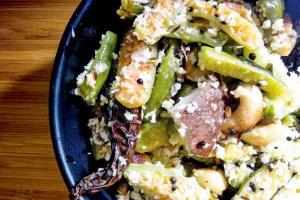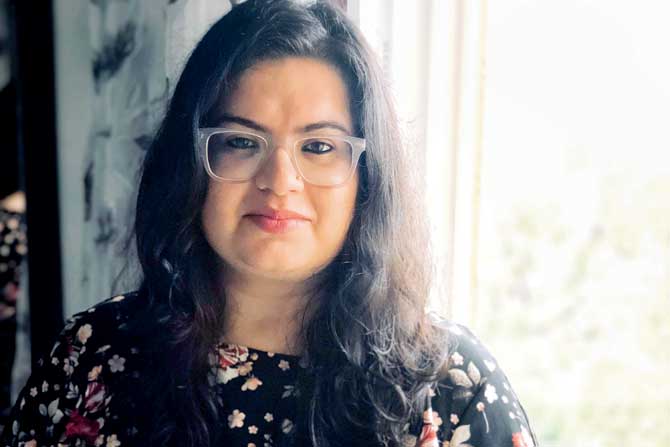At a pop-up this Sunday, savour Chitrapur Saraswat Brahmin cuisine that amalgamates the culinary heritages of multiple regions in India

Tendle bibbe upkari
Purists may discourage such conversation, but the truth is that the overlap in the various cuisines of India is a natural occurrence. Food, after all, is not just a mish-mash of a few ingredients but akin to a sponge, which along with these ingredients also soaks in the multifarious cultures they come riding on. As such, politics, geography, history and society have played a unique role in shaping our food.
ADVERTISEMENT
That's precisely why coconut, kokum or tamarind are so commonplace in coastal cuisines. The first thought is that it's easier to paint them all with the same brush, but the current tide in the food industry is more inclined towards putting these culinary aesthetes into neat little boxes. That's not just difficult to do, but also no fun. The Chitrapur Saraswat Brahmin (CSB) community, for example, finds its roots in Kashmir. Having migrated from there and settled in a pocket in Karnataka, the Deccan way of eating has impacted the cuisine. But a little less than a century ago, many CSB families relocated to Maharashtra, bringing along their culinary traditions to the city.
At a pop-up scheduled for this Sunday, home chef Shanti Petiwala hopes to acquaint diners with her community's cuisine that draws from its own origins, as well as from the culinary heritages of Karnataka and Maharashtra.

Shanti Petiwala
"Regions in Karnataka, like Hubli, were part of Bombay Presidency State before Independence. So, a lot of my ancestors born then have studied in Marathi. As such, there's already a lot of Maharashtrian influence that had filtered into Karnataka, including in our cuisine. For example, CSBs are predominantly pescatarians. That's because as Brahmins, we don't traditionally eat meat, but because we lived around the Konkan belt, fish became a part of our diet," Petiwala explains, adding that dishes like the amti dal also have a CSB version.
So, the menu offers dishes that sit at the intersection of different cuisines, like a tomato saar instead of a traditional Maharashtrian kokum one; a rawa fish fry, but made with CSB masalas rather than, say, a Malvani version; and tendle bibbe upkari, which is a stir-fry of ivy gourds, also prepared as poriyal in the south.
"The amti recipe from my mother's kitchen has a unique story. My great-grandfather would travel to Maharashtra frequently. Once, he returned raving about a particular dal he tried in a village. So, my great grandmother had to recreate the recipe through his memories and that's how a special amti masala birthed in our family," Petiwala shares, reiterating the importance of embracing not just the diversity of Indian food, but the multiplicity of cultures within cuisines.
AT Versova, Andheri West (exact address to be revealed after booking a seat)
ON July 14, 1.30 pm
CALL 8657281152
COST Rs 1,600 (for veg); Rs 2,200 (for non-veg)
Catch up on all the latest Crime, National, International and Hatke news here. Also download the new mid-day Android and iOS apps to get latest updates
 Subscribe today by clicking the link and stay updated with the latest news!" Click here!
Subscribe today by clicking the link and stay updated with the latest news!" Click here!






